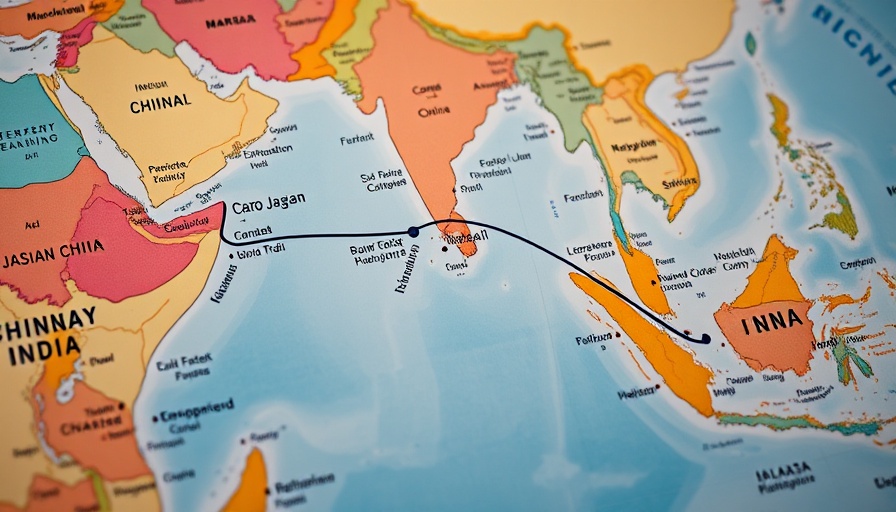
The $100 Billion Vision: India and Russia Unite
In a landmark effort to bolster economic ties, Indian Prime Minister Narendra Modi and Russian President Vladimir Putin have signed a significant trade deal aiming for $100 billion in annual trade by 2030. This ambitious roadmap is set against a backdrop of increasing trade volume—rising from $65 billion in 2023, marking a 66% growth year-on-year. For import-export professionals, these developments open a treasure trove of opportunities in the growing India-Russia trade landscape.
Strategic Moves Towards Reducing Trade Barriers
To achieve this ambitious goal, both nations are committed to improving their trade structures by simplifying customs procedures, enhancing logistics support, and pursuing a local currency exchange system. As outlined in the agreements, transactions will start reflecting in Indian Rupees (INR), aiming to reduce dependency on the US dollar and enhance financial stability. This shift is particularly beneficial in mitigating exchange rate risks for import-export operators.
A Boost for Make in India
Encouraging exports through the "Make in India" initiative is another pivotal angle of the trade agreement. This initiative aims to not only increase domestic manufacturing but also create exciting export opportunities. With a renewed focus on sectors like pharmaceuticals and technology, businesses can expect to see support for innovation and development.
Growing Infrastructure and Connectivity
Infrastructure improvements between India and Russia are essential for facilitating trade expansion. New maritime routes, such as the Chennai-Vladivostok maritime route, and enhanced land transport corridors like the International North-South Transport Corridor (INSTC) promise to streamline cargo movement between the two countries. By developing these routes, businesses will find it easier to access important markets.
Diverse Industry Opportunities Emerging
The trade deal serves as more than a blanket economic strategy; it delves into specific sectors that stand to benefit immensely. The growing demand for Indian products in Russia, especially in technology and pharmaceuticals, offers Indian businesses a unique positioning. This is particularly opportune following the exit of Western brands from Russia after the Ukraine conflict, creating room for Indian firms to fill the gaps in various markets.
Collaboration Beyond Trade: Initiating Business Engagement
The agreement also aims to foster greater collaboration between businesses through organized B2B meetings and promotional events. This strategic emphasis on increasing people-to-people contact will enhance mutual understanding and further encourage commercial engagements. Indian businesses seeking to expand will have platforms to interact directly with Russian counterparts, offering invaluable networking opportunities.
 Add Row
Add Row  Add
Add 




Write A Comment